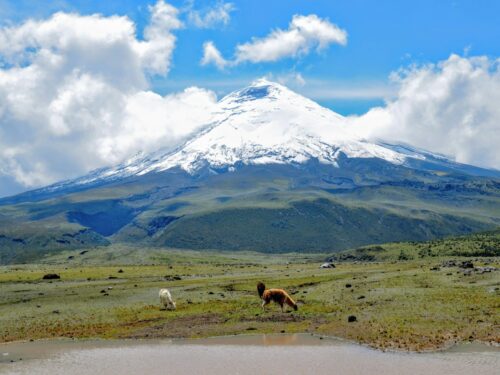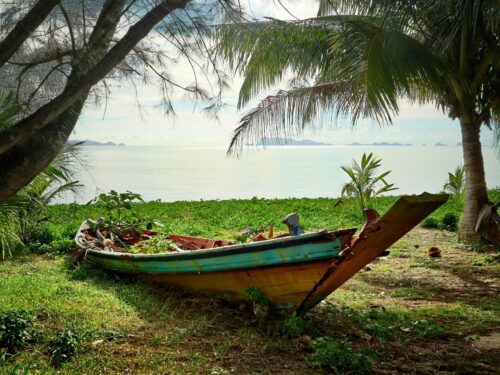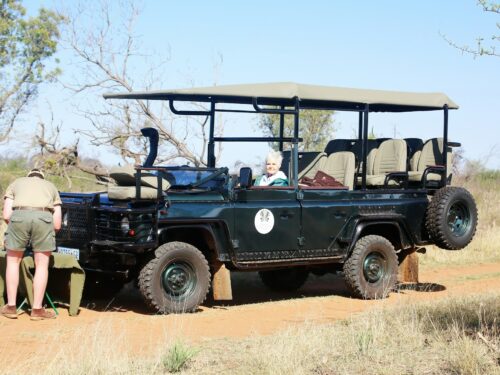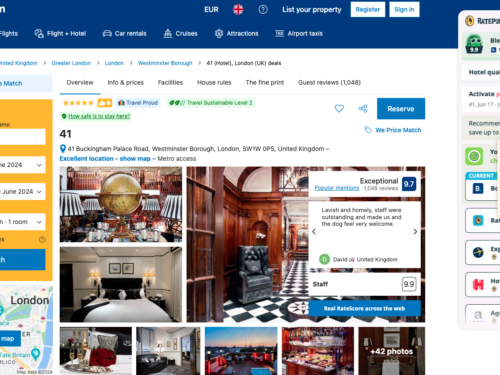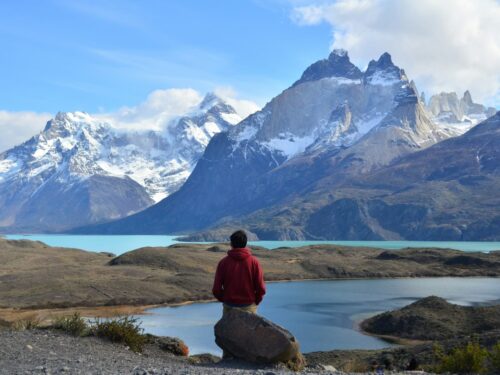
Timeshares may seem like a convenient way to secure vacation spots, but independent travel offers a far superior option for those seeking genuine adventure and flexible travel.
By planning your trips independently, you control where you go, what you do, and how long you stay. This freedom allows you to explore new places and cultures at your own pace truly.
For those who enjoy spontaneity, learning to plan for last-minute vacations can be incredibly useful, offering the excitement of impromptu travel while ensuring a smooth experience. With the right planning and resources, independent travel can be affordable and far more enriching than traditional timeshares. It allows you to tailor your experiences to your current interests and needs, rather than being locked into a predetermined destination year after year.
For those new to independent travel, starting with destinations that have a low crime rate and are tourist-friendly can be a good idea. Conduct thorough research before your trip; valuable information can be found in travel guides, blogs, and forums where travelers share their experiences. Always have a safety plan, stay connected with family and friends, and be aware of local customs and safety tips.
This groundwork can make your journey safer and more enjoyable.
One of the most significant advantages of independent travel is the ability to create a personalized itinerary. Whether you prefer a structured plan or a more flexible schedule, the choices are yours.
This flexibility starkly contrasts the constraints often associated with timeshares, leading many to wonder how to cancel a timeshare in favor of more adaptable travel options. Use this freedom to explore hidden gems, try local cuisine, and engage with the culture in ways a timeshare vacation might not allow. This approach enriches your travel experience and opens up a world of unexpected adventures and discoveries.
For those considering canceling their timeshare to pursue more independent travel, it’s important to research the process thoroughly and understand the potential legal and financial implications.

Planning Your Independent Travel Adventure
To make the most of your independent adventure, focus on selecting the ideal destination, creating a flexible plan, and wisely budgeting to allow for spontaneous fun.
Choosing the right destination
Selecting the perfect destination is the first step in planning.
Start by researching various places you are interested in visiting. Consider weather, local customs, and safety factors. Discuss your plans with friends who have traveled to those destinations for personal insights.
Online travel blogs and forums provide valuable firsthand experiences from other travelers that can help inform your decision.
Choose a place that matches your interests, whether it’s a bustling city, a tranquil beach, or a rugged mountain region.
Always check travel advisories to ensure your chosen destination is safe and welcoming.
Related read: Trending Destinations: Under the Radar Places to Travel to
Crafting a Flexible Itinerary
Planning an itinerary that balances structure and flexibility is key to an enjoyable trip. Begin by identifying major attractions and activities you don’t want to miss.
Allocate time for these must-see sights but leave ample room in your schedule for unexpected discoveries and spontaneous adventures. Flexibility in your plans allows you to adapt to changes and enjoy the journey without feeling rushed. Remember, some of the best travel experiences come from unplanned moments and interactions with locals.
Consider downloading travel apps to keep track of your plans and make adjustments as needed.
Budgeting for Spontaneity
Creating a budget that accounts for both planned expenses and spontaneous opportunities is essential.
Start by calculating major costs such as flights, accommodation, and transportation. Research average prices for food, activities, and local attractions to get a clear picture of your daily expenses.
Set aside a portion of your budget for unplanned experiences like a last-minute tour, a unique local dish, or a special souvenir. Keeping some funds reserved for emergencies is also wise.
Planning your finances carefully ensures you can enjoy a fulfilling trip without overspending.

Navigating Accommodation Options
Independent adventurers have various accommodation choices that can enhance their travel experiences.
From using short-term rental platforms to engaging with local communities and prioritizing safety, these tips can help travelers make the most informed decisions.

Leveraging Short-Term Rental Platforms
Short-term rental platforms, such as Airbnb and Vrbo, offer many options for travelers seeking unique places to stay. These platforms filter narrow choices based on budget, amenities, and location. Staying in a rental can provide a more personalized experience, allowing travelers to live like locals.
It is crucial to read reviews carefully and communicate with hosts to ensure the property meets expectations. Comparing prices across different platforms can also help find the best deals.
Additionally, considering cancellation policies and extra fees such as cleaning charges is important for budgeting accurately.
Seeking Authentic Experiences through Local Stays
Staying with locals or in guesthouses can provide a deeper connection to the destination.
Many travelers opt for homestays, bed and breakfasts, or community-based lodgings that offer a more personal touch. These options often include insights into local customs, traditions, and cuisine, enriching the travel experience. Engaging with hosts native to the area can lead to discovering hidden gems and off-the-beaten-path attractions.
Booking through reputable services that specialize in local accommodations ensures quality and authenticity.
This stay also supports local economies and provides cultural exchange and learning opportunities.

Safety Considerations for Solo Travelers
For solo travelers, safety is paramount when choosing accommodations.
Researching the neighborhood and reading up-to-date reviews can help assess the location’s security. Solo travelers should select places with controlled access and secure locks. Staying connected with friends or family by sharing accommodation details adds an extra layer of safety.
It is advisable to avoid accommodations that appear secluded or poorly reviewed. Having a backup plan in case of unsatisfactory lodgings can also be helpful.
Trusting one’s instincts and avoiding too-good-to-be-true deals is essential in ensuring a safe and enjoyable stay.
Related read: Safe Places for Solo Female Travel

